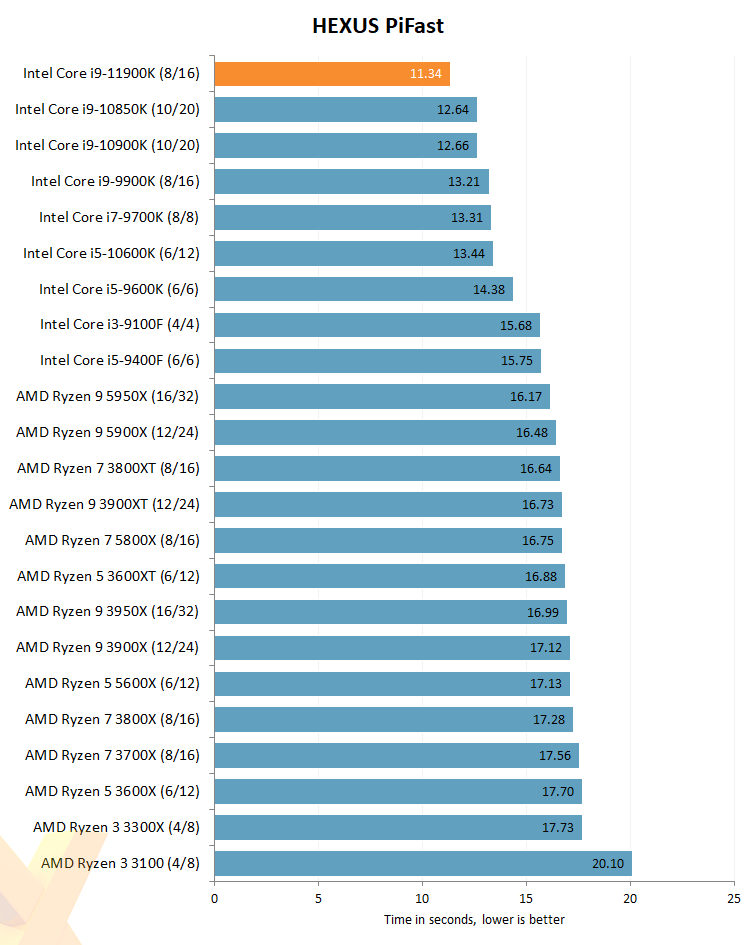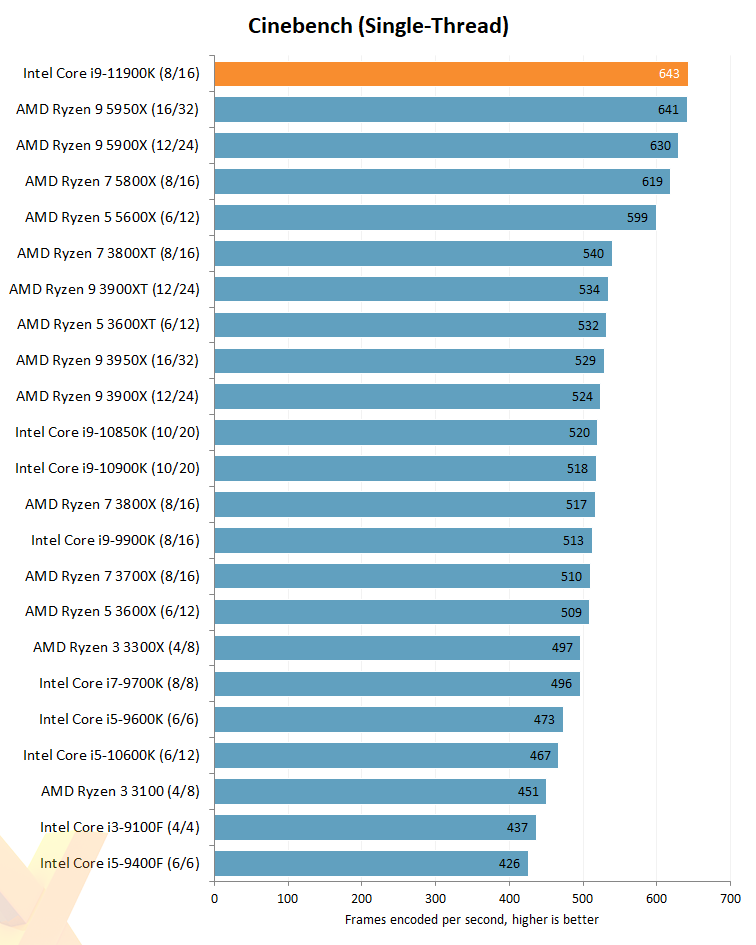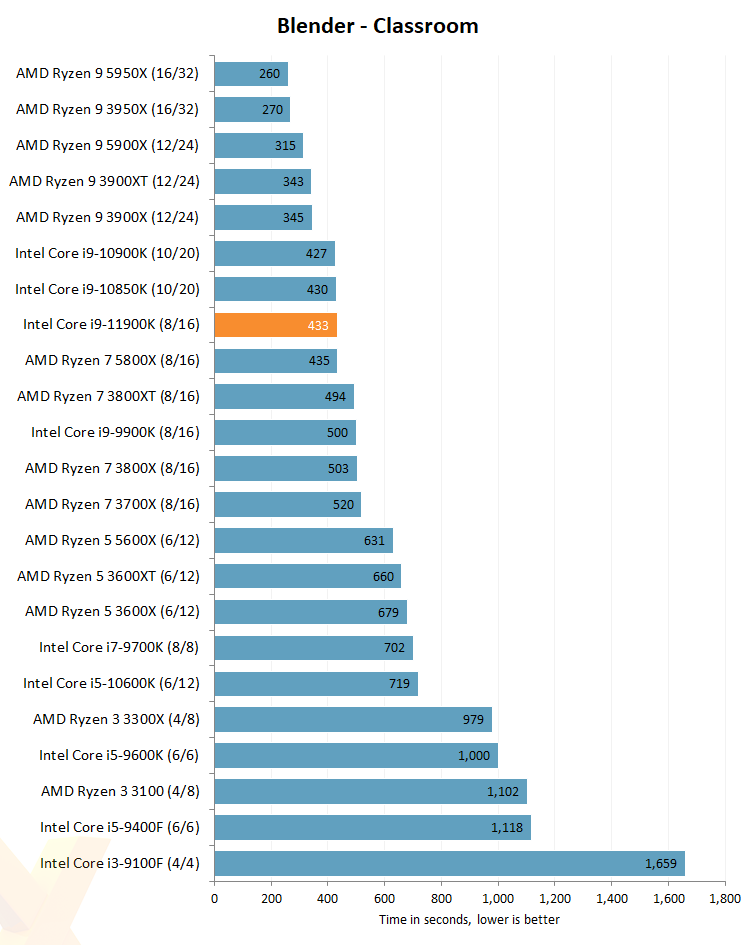CPU Tests

PiFast is all about low-thread IPC. It's natural for Core i9-11900K to ace the charts because of its 5.3GHz opportunistic boost and Sunny Cove-derived architecture. Comparing like-for-like on a core-and-thread basis, the Core i9-9900K, released in October 2018, isn't all that far behind.
AMD's Ryzen 7 5800X is somewhat slower, but that's usually the case in this decades-old benchmark.

Intel promises a sizeable uplift in single-thread performance... and it continues to deliver, usurping AMD's latest and greatest by a very fine margin. Core i9-11900K is about 24 per cent faster than its direct predecessor and around four per cent speedier than the Ryzen 7 5800X.
It's interesting that Core i9-10900K actually benchmarks behind the 10850K here, which is decidedly odd. If you recall, we have tested it on the same Z590 platform as 11900K. Looking closer, Thermal Velocity Boost doesn't appear to be working well for 10900K on Z590. Guess that is the price one pays for having so many Z590 BIOSes in quick succession.

We always knew that multi-core benchmarks would be this chip's Achilles heel. Cranking up the wattage to ensure the processor runs the benchmark at an all-core 5.1GHz, together with IPC improvements, means it is about the same pace as the 10C20T Core i9-10900K and 8C16T AMD Ryzen 7 5800X. As you will see later on, the AMD chip can dole out performance at much lower power budgets. Intel is paying the price of using 14nm cores when AMD is riding on 7nm.

Another power test reveals that multi-core performance doesn't move on from the last generation. Makes sense when one appreciates the fewer cores and threads here. What's clear to see is that rival AMD has a massive multi-thread lead for mainstream platforms. Extrapolating out, what takes this Core i9-11900K 30 minutes will take the Ryzen 9 5950X merely 18 minutes.
We wonder what kind of wattage would be needed to drive a theoretical 16C32T Cypress Cove chip on the present 14nm process? 400W at the very least.









